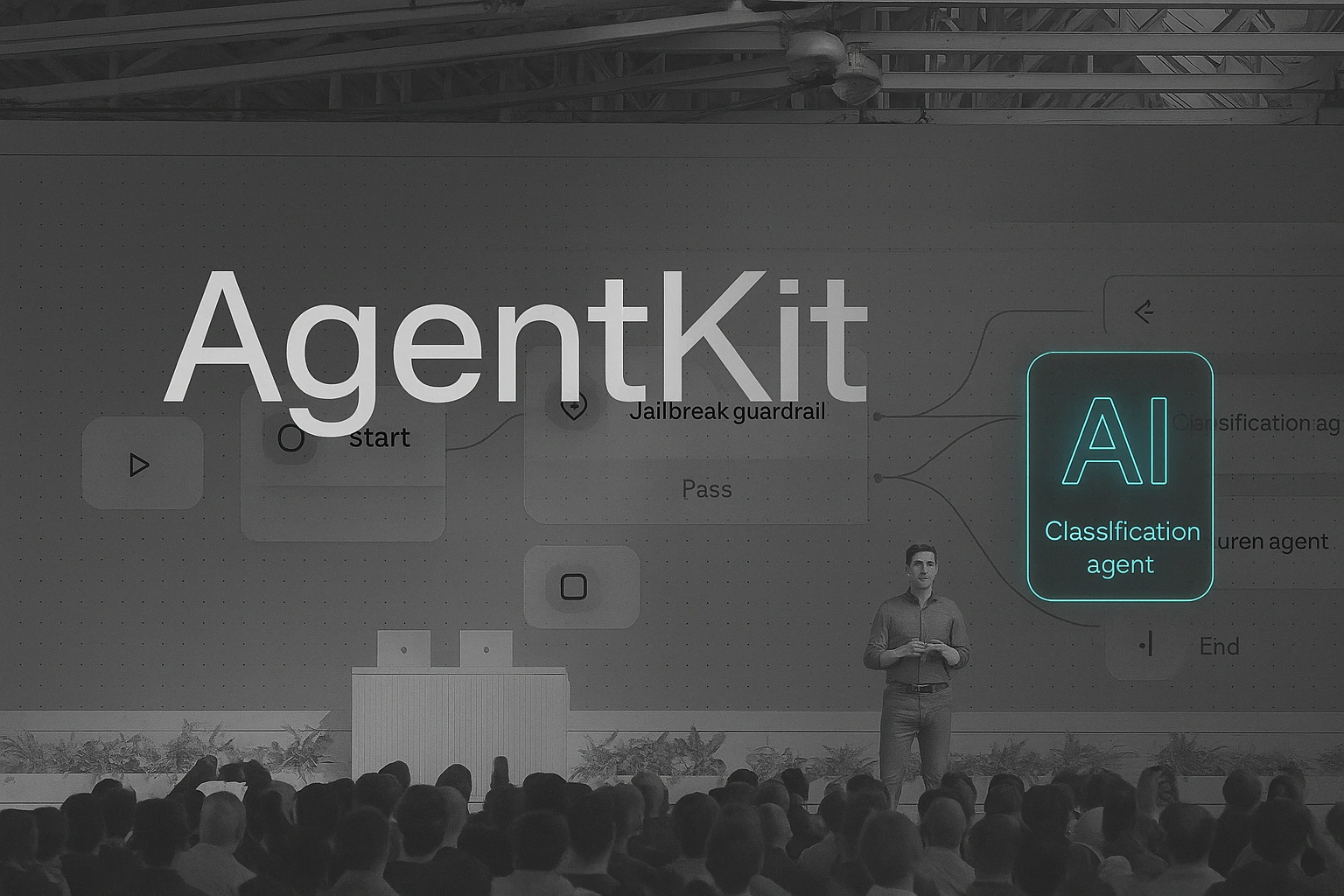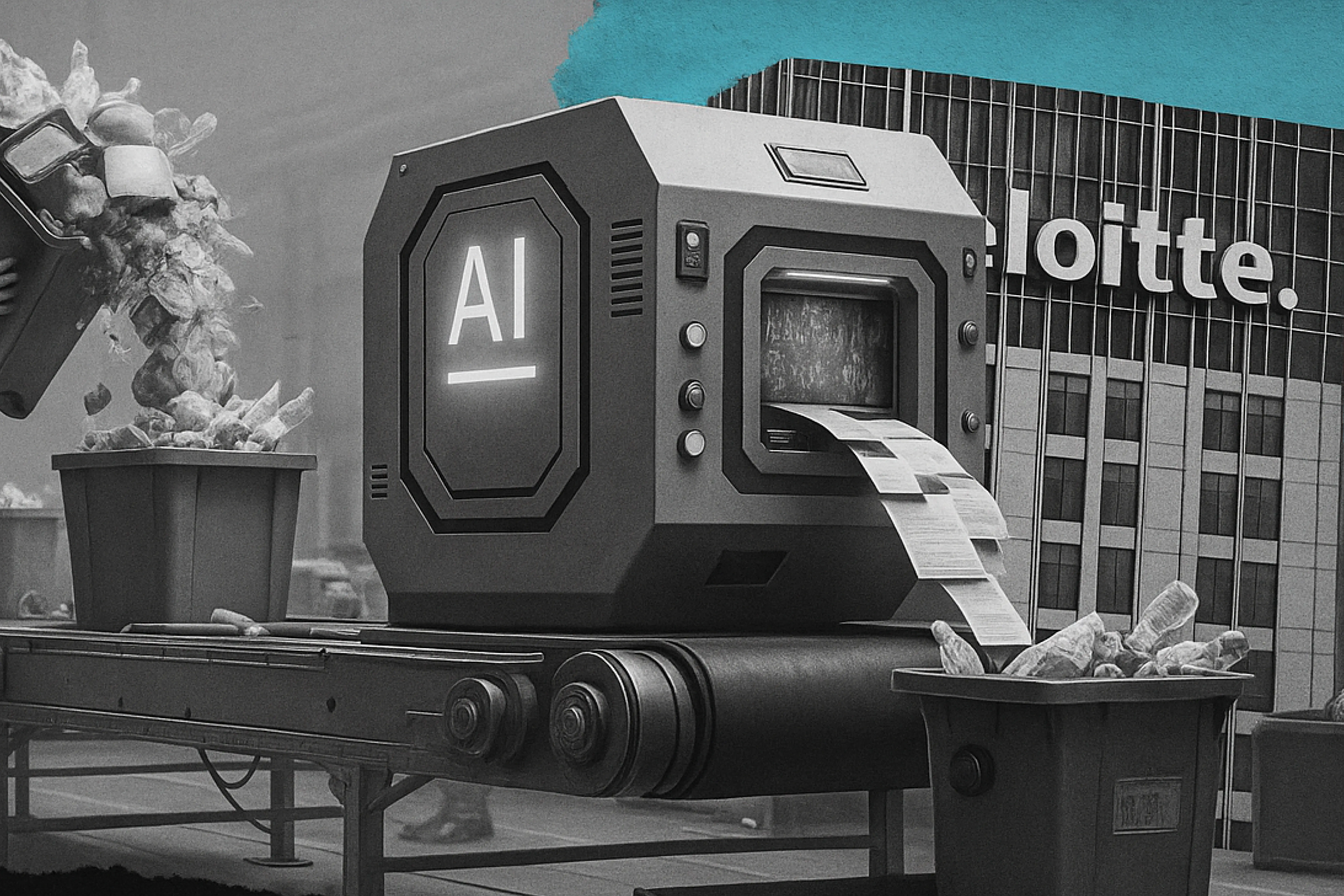-min.png)
Model Context Protocol (MCP): Complete 2025 Guide to Connecting AI with Real-World Data
RegisterListen now
at
Key Takeaways
Model Context Protocol (MCP): Complete 2025 Guide to Connecting AI with Real-World Data
Summary
The Model Context Protocol (MCP) is a new open standard that solves one of the biggest challenges in AI development: giving large language models (LLMs) access to real-world data, tools, and workflows. Instead of building fragile, one-off APIs or plugin systems, MCP lets developers quickly and securely connect AI models (like ChatGPT, Claude, or Gemini) to business systems using a unified, scalable approach. Whether you're building AI agents, smart assistants, or internal copilots, this 2025 guide gives you the technical insight and business rationale to implement MCP effectively.
The Model Context Protocol (MCP) is revolutionizing how AI applications connect with external data sources, transforming the development landscape faster than any protocol since REST APIs. With major companies like OpenAI, Google DeepMind, and Anthropic implementing MCP across their platforms, mastering this technology has become essential for AI developers in 2025.
According to Demis Hassabis, CEO of Google DeepMind, who confirmed in April 2025 MCP support in the upcoming Gemini models, describing the protocol as "rapidly becoming an open standard for the AI agentic era".
This comprehensive tutorial will guide you through everything you need to know about MCP, from basic concepts to building production-ready servers that can scale to enterprise demands.
Whether you're a developer expert looking to integrate AI capabilities into existing systems or a newcomer eager to understand the future of AI connectivity, this guide provides the practical knowledge and step-by-step instructions you need to succeed with Model Context Protocol implementation.
1. What is the Model Context Protocol (MCP) and why does it matter in 2025?
The Model Context Protocol represents a paradigm shift from fragmented, custom integrations to a standardized, universal framework.
Unlike traditional API integrations that require unique implementations for each AI model and data source combination, MCP provides what Anthropic calls "the USB-C port for AI applications", a single standard that works across all platforms.
According to Anthropic's official announcement, "MCP addresses this challenge. It provides a universal, open standard for connecting AI systems with data sources, replacing fragmented integrations with a single protocol".
Key differentiators of MCP:
- Universal compatibility
One integration works with Claude, ChatGPT, Gemini, and future AI models - Bidirectional communication
Real-time data flow between AI systems and external tools - Built-in security
OAuth 2.1 support, enterprise-grade access controls, and audit logging - Developer velocity
Reduce integration time from weeks to hours with standardized patterns, as Claude 3.5 Sonnet is adept at quickly building MCP server implementations.
MCP vs Traditional API integration: the complete comparison
.png)
The MCP revolution: beyond traditional API Limitations
Unlike traditional API integrations that require custom implementations for each data source, MCP provides a unified framework that allows AI models to seamlessly access diverse contexts and capabilities.
This revolutionary approach addresses one of the biggest challenges in AI development: connecting sophisticated models to the systems where data actually lives.
Key advantages over traditional methods
Universal standardization
Replace hundreds of custom integrations with a single, standardized protocol that works across all AI models and data sources.
Bidirectional communication
Unlike static APIs, MCP enables real-time, two-way data flow between AI systems and external tools.
Vendor independence
Switch between different AI models (Claude, ChatGPT, Gemini) without rebuilding integrations.
Enhanced security
Built-in security patterns, OAuth 2.1 support, and enterprise-grade access controls.
Developer velocity
Reduce integration development time from weeks to hours with pre-built servers and standardized patterns.
2. Why should software businesses adopt MCP in 2025?
What integration challenges did MCP solve for AI systems?
If you're running a software business in 2025, you're facing an unprecedented challenge: every competitor is racing to add AI features, but most are building expensive, fragmented solutions that will become technical debt within 12 months.
The statistics are sobering:
- 78% of organizations now use AI in at least one business function (McKinsey State of AI 2024)
- Failure rate: 80%+ of AI projects fail to reach production (RAND Corporation Research 2024)
- Rising failures: 42% of businesses scrapped most AI initiatives in 2024, up from 17% in 2023 (S&P Global Market Intelligence)
- Limited success: Only 26% of companies turn AI pilots into real business value (BCG AI Adoption Report 2024)
The fundamental problem: Traditional AI integration approaches create vendor lock-in, maintenance nightmares, and limit your ability to adapt to rapidly evolving AI landscape, as documented in Anthropic's MCP announcement.
Direct benefits MCP delivers to any software business
-min.png)
1. Engineering team efficiency
Before MCP
Your developers spend more than half of their AI project time building custom integrations, maintaining multiple API connections, and debugging vendor-specific implementations.
With MCP
One standard implementation connects to all AI models - past, present, and future.
Specific benefits:
- Reduce AI integration time from months to weeks
- Free up senior engineers from integration maintenance to product features
- Eliminate vendor-specific API learning as one protocol works everywhere
- Cut debugging time with standardized error handling
- Accelerate feature shipping for AI-powered capabilities
2. Customer acquisition and retention
Before MCP
You lose deals because customers want different AI models, or you can't demo AI features effectively during sales calls.
With MCP:
You can now be a vendor that offers customer choice and flexibility.
Specific benefits:
- Win more enterprise deals by supporting customer's preferred AI model
- Reduce sales cycle with compelling AI demonstrations
- Increase trial-to-paid conversion through extensive AI capabilities
- Improve customer retention through AI-powered workflow integration
- Expand into new markets by supporting region-specific AI requirements
3. Product development speed
Before MCP
Each new AI feature would require months of planning, custom integration work, and vendor negotiations.
With MCP
You can now add new AI capabilities in days, not months.
Specific benefits:
- Ship AI features faster than competitors, still building custom integrations
- Experiment with multiple AI models without additional engineering work
- Respond to customer requests for specific AI capabilities within weeks
- A/B test different AI providers to optimize performance and cost
- Future-proof your product against AI vendor changes and new market entrants
Real numbers: According to GitHub's 2024 AI survey, 97% of developers have used AI coding tools, and companies that actively encourage AI adoption see significantly higher productivity gains than those that merely allow it.
Developers are also seeing real benefits, as the 2024 Developer Survey shows, with 81% agreeing that increasing productivity is the biggest benefit that developers identify for AI tools.
Speeding up learning is seen as a bigger benefit to developers learning to code (71%) compared to professional developers (61%).
.png)
4. Revenue growth through premium AI features
Before MCP
Limited AI capabilities would restrict your ability to charge premium pricing or expand customer usage.
With MCP
Comprehensive AI integration enables premium feature tiers and expanded use cases.
Specific benefits:
- Increase average revenue per user through AI feature premiums
- Create new pricing tiers for AI-enhanced plans
- Drive expansion revenue as customers adopt more AI-powered workflows
- Reduce churn through increased product stickiness from AI integrations
- Command market-leading prices due to superior AI capabilities
Real numbers: Software companies typically see significant revenue increases through AI feature adoption. According to BCG's 2024 research, software companies are among the AI leaders, with 46% achieving advanced AI maturity compared to 26% industry average.
5. Competitive differentiation
Before MCP
You now have to compete on basic features while struggling to keep up with AI-native startups.
With MCP
You can become an established company with startup-level AI innovation speed.
Specific benefits:
- Outpace AI-native startups with faster feature development and enterprise-grade infrastructure
- Win competitive deals based on AI flexibility and customer choice
- Establish thought leadership in AI integration and industry innovation
- Attract top engineering talent with cutting-edge technology stack
- Build customer switching costs through integrated AI workflows
Real numbers: Companies report significant improvements in competitive positioning after MCP implementation, based on early adopter feedback from Anthropic's MCP announcement featuring companies like Block and Apollo.
6. Cost optimization and risk reduction
Before MCP
You have to pay premium prices to AI vendors and face vendor lock-in risks.
With MCP
You can gain negotiating power and cost optimization opportunities.
Specific benefits:
- Negotiate better AI vendor pricing by demonstrating ability to switch providers
- Optimize costs by using different AI models for different use cases
- Reduce vendor lock-in risk and maintain strategic flexibility
- Lower total cost of ownership by eliminating multiple integration maintenance
- Scale AI usage without linear cost increases
Specific MCP benefits by software business type
B2B SaaS platforms (CRM, ERP, marketing tools)
Your challenge: Customers want AI-powered insights and automation, but integration complexity limits what you can offer.
MCP advantage:
- Connect to customer's existing data across all their business systems
- Offer AI-powered analytics that understand full business context
- Enable workflow automation that spans multiple AI capabilities
- Provide personalized AI assistants for each customer's specific needs
Specific revenue impact:
- Increase in contract value through AI premium tiers
- Improvement in customer lifetime value through workflow lock-in
- Faster customer onboarding with AI-assisted setup
Example: HubSpot-style platform adds MCP to connect customer data from Salesforce, Gmail, LinkedIn, and analytics tools, enabling AI sales assistant that increases customer sales performance by 30% (Salesforce State of Sales Report 2024 - AI-powered sales productivity improvements).
Developer tools and platforms
Your challenge: Developers expect AI coding assistance, but limited context makes AI suggestions generic and often wrong.
MCP advantage:
- Access full codebase context for accurate AI suggestions
- Connect to development workflows including Git, CI/CD, issue tracking
- Support any AI model developers prefer for coding assistance
- Enable AI-powered debugging with access to logs, metrics, documentation
Specific revenue impact:
- Transform pricing from individual to team plans
- Increase daily active usage through AI workflow integration
- Reduce customer churn through increased productivity value
Example: VS Code-style editor adds MCP to connect to GitHub, Jira, Slack, and documentation, enabling AI pair programmer that understands project context and increases developer productivity by 50% (GitHub Copilot Research - AI coding assistant productivity metrics).
Vertical/Industry-specific software
Your challenge: Customers need AI that understands industry-specific data, regulations, and workflows.
MCP advantage:
- Connect to industry-specific systems (EMRs, legal databases, manufacturing systems)
- Support compliance requirements for AI model choice and data handling
- Enable domain-expert AI that understands industry terminology and processes
- Integrate with regulatory and compliance systems for audit trails
Specific revenue impact:
- Create premium pricing for AI-enhanced industry solutions
- Expand market reach by supporting different regions' AI compliance requirements
- Increase customer switching costs through deep workflow integration
Example: Legal practice management software adds MCP to connect to case law databases, court filing systems, and document management, enabling AI legal assistant that reduces case research time by 70% (Thomson Reuters Legal AI Impact Study 2024 - AI efficiency in legal research).
E-commerce and marketplace platforms
Your challenge: Merchants want AI for personalization, inventory optimization, and customer service, but can't access needed data.
Here is a clear example:
-min.png)
- Unify customer data across touchpoints for personalization
- Connect inventory and supply chain systems for AI-powered optimization
- Enable AI customer service with access to order history, product catalogs, customer preferences
- Support multiple AI models for different merchant needs and preferences
Specific revenue impact:
- Increase in platform fees through AI-powered merchant success
- Improvement in merchant retention through AI-driven revenue growth
- Double platform usage through expanded AI-powered features
Example: Shopify-style platform adds MCP to connect inventory, customer data, marketing tools, and analytics, enabling AI merchant assistant that increases average merchant revenue by 45% (Shopify Commerce Trends Report 2024 - AI-powered e-commerce optimization results).
Communication and collaboration software
Your Challenge: Teams want AI assistance for meetings, project management, and knowledge sharing, but AI lacks context about team dynamics and project history.
MCP advantage:
- Access communication history across channels for context-aware AI
- Connect to project management tools for AI-powered workflow optimization
- Enable meeting AI with access to calendars, documents, previous meetings
- Support knowledge management with AI that understands team expertise and project context
Specific revenue impact:
- Increase in per-seat pricing through AI productivity features
- Reduction in churn through increased team productivity value
- Expand to enterprise market with AI governance and compliance features
Example: Slack-style platform adds MCP to connect calendars, project tools, documents, and team profiles, enabling AI assistant that automatically prepares meeting agendas and tracks project progress (Microsoft Teams AI Features Report 2024 - workplace AI productivity improvements).
Implementation success factors for software businesses
-min.png)
Phase 1: Quick wins
Focus: Prove MCP value with internal tools and simple customer features.
Specific actions:
- Connect internal AI tools to company databases and code repositories
- Measure developer productivity improvement
- Implement simple customer MCP feature (e.g., AI that reads customer's uploaded files)
- Gather initial customer feedback and usage analytics
Phase 2: Customer value
Focus: Deploy MCP features that directly impact customer success and willingness to pay.
Specific actions:
- Launch MCP-powered premium tier with price increase
- Enable customer data connections to their existing business tools
- Create AI workflows that solve customers' biggest pain points
- Develop customer success metrics showing AI-driven improvements
Phase 3: Market leadership
Focus: Establish market position as the AI-flexible, customer-choice platform.
Specific actions:
- Support all major AI models (Claude, ChatGPT, Gemini, etc.)
- Build MCP marketplace for third-party integrations
- Launch enterprise features with AI governance and compliance
- Develop partner ecosystem with AI providers and system integrators
3. Why MCP is essential for modern AI development
-min.png)
The integration crisis before MCP
Before MCP, AI integration faced what Anthropic described as the "N×M problem", every AI tool needed separate integrations with every data source, creating exponential complexity:
- Custom development
Each integration required unique code, API understanding, and maintenance
- Fragmented ecosystem
No standardization across AI providers or tool vendors
- Scalability issues
Linear increase in complexity with each new integration
- Maintenance overhead
Updates to any component could break multiple integrations
- Vendor lock-in
Integrations tied to specific AI providers limited flexibility
How does MCP address the key challenges in AI integration?
1. Eliminates integration fragmentation
MCP provides a universal, open standard for connecting AI systems with data sources, replacing fragmented integrations with a single protocol.
This means:
- One integration works with all MCP-compatible AI models
- Standardized patterns reduce development time
- Simplified maintenance across your entire AI stack
- Future-proof architecture that adapts to new AI models
2. Enables true AI context awareness
Modern AI applications need access to:
- Real-time data (databases, APIs, live feeds)
- Historical context (document repositories, version control)
- Interactive capabilities (system commands, workflow automation)
- Business logic (custom rules, approval processes)
3. Accelerates enterprise AI adoption
Early adopters like Block and Apollo have integrated MCP into their systems, while development tools companies including Zed, Replit, Codeium, and Sourcegraph are working with MCP to enhance their platforms.
Industry adoption and market impact
The rapid adoption of MCP signals a fundamental shift in AI development:
Major AI providers
Following its announcement, the protocol was adopted by major AI providers, including OpenAI and Google DeepMind.
Enterprise integration
In March 2025, OpenAI officially adopted the MCP, following a decision to integrate the standard across its products, including the ChatGPT desktop app, OpenAI's Agents SDK, and the Responses API.
Developer tools
Integration across major IDEs, code editors, and development platforms
Community growth
Thousands of open-source MCP servers and expanding ecosystem
4. How does the Model Context Protocol architecture work?
Core architectural principles
MCP follows a client-server architecture inspired by the Language Server Protocol (LSP), designed for reliability, security, and scalability.
A. MCP hosts: the AI application layer
Programs like Claude Desktop, IDEs, or AI tools that want to access data through MCP.
Hosts manage:
- User interactions and permissions
- Multiple client connections
- Security policy enforcement
- Error handling and recovery
B. MCP clients: the protocol interface
Protocol clients that maintain dedicated 1:1 connections with servers.
Each client handles:
- Connection lifecycle management
- Message serialization/deserialization
- Authentication and authorization
- Session state management
3. MCP servers: the capability providers
Lightweight programs that expose specific capabilities through the standardized Model Context Protocol. Servers can connect to:
- Local data sources: Files, databases, system services
- Remote services: APIs, cloud platforms, external systems
- Custom logic: Business rules, workflows, calculations
Communication protocols and transport layers
MCP uses JSON-RPC 2.0 as its underlying message format, ensuring standardized, reliable communication.
The protocol supports multiple transport methods:
STDIO Transport (local integrations)
Use cases: Local development, file system access, database connections
Benefits: Low latency, simple deployment, no network configuration
Security: Process isolation, local system permissions
HTTP+SSE transport (remote integrations)
Use cases: Cloud services, enterprise APIs, distributed systems
Benefits: Network-based, scalable, centralized management
Security: OAuth 2.1, TLS encryption, centralized auth
MCP server capabilities framework
Every MCP server can expose three types of capabilities:
Resources: data and content access
Resources provide read-only access to data sources without side effects:
Examples: File contents, database records, API responses, cached data
Tools: Interactive functions
Tools enable AI models to perform actions and modifications:
Examples: API calls, system commands, database modifications, file operations
Prompts: reusable templates
Prompts provide standardized instruction templates for consistent AI interactions:
5. Why is MCP more scalable than traditional AI integration methods?
The evolution of AI integration approaches
6. What are the top security best practices for implementing MCP?
Critical security vulnerabilities in MCP implementations
Recent security research has identified several MCP-specific vulnerabilities that developers must address.
According to a 2025 security analysis by Palo Alto Networks:
"MCP's architecture offers significant advantages in interoperability and efficiency, but it also introduces unique security challenges."
1. Prompt injection attacks (CVSS 8.5)
Risk: Malicious inputs can manipulate AI behavior through MCP tool descriptions
Mitigation: Implement input sanitization and context separation
Example: Tool description containing hidden instructions to exfiltrate data
Source: MCP Security Exposed report, Palo Alto Networks 2025
2. Tool poisoning vulnerabilities (CVSS 7.8)
Risk: Attackers modify tool metadata to alter AI behavior
Mitigation: Digital signatures for tool definitions, metadata validation
Impact: Research shows these vulnerabilities affect a significant portion of MCP implementations
Source: Security analysis by Equixly, March 2025
3. Excessive privilege escalation (CVSS 6.9)
Risk: MCP servers granted broader access than necessary
Mitigation: Principle of least privilege, regular permission audits
Advisory: Microsoft's security blog emphasizes that "granting excessive permissions can allow for exfiltration or amending data that the MCP server was not intended to be able to access"
Enterprise security implementation framework
Security monitoring and incident response
Key metrics to monitor:
- Failed authentication attempts (threshold: >5/minute)
- Unusual tool execution patterns
- Large data exfiltration attempts
- Cross-server communication anomalies
For comprehensive security guidelines, refer to the official MCP security best practices documentation.
Automated alert configuration:
7. How can you scale MCP for enterprise-grade AI systems?
Scaling MCP servers for enterprise workloads
Performance benchmarks (based on 2025 Enterprise Deployments):
Performance optimization techniques
Database query optimization:
- Connection pooling with 20+ concurrent connections
- Query result caching (Redis/Memcached)
- Database index optimization for MCP-specific queries
- Read replica distribution for analytics workloads
Memory management:
- Response streaming for large datasets
- Memory-mapped file access for document processing
- Garbage collection tuning for long-running servers
- Resource pooling for expensive operations
Network optimization:
- HTTP/2 for transport layer efficiency
- Compression for large response payloads
- CDN integration for static resource delivery
- Regional server deployment for global access
8. What are some real-world examples of MCP in production?
Industry implementation success stories
1. Block (Square) - financial services integration
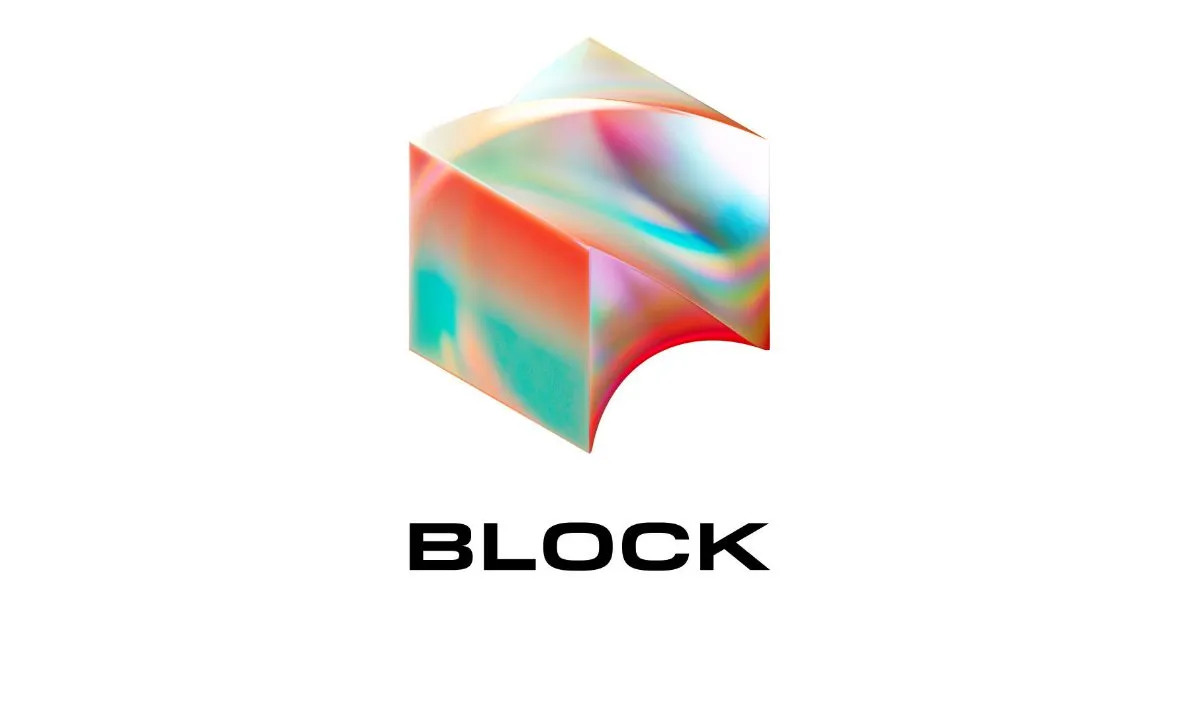
- Challenge
Connect payment processing AI to 50+ financial data sources - Solution
MCP servers for transaction analysis, fraud detection, compliance reporting
"At Block, open source is more than a development model—it's the foundation of our work and a commitment to creating technology that drives meaningful change and serves as a public good for all," said Dhanji R. Prasanna, Chief Technology Officer at Block
- Results
Significant reduction in integration development time, achieving high uptime standards
2. Replit - developer platform enhancement
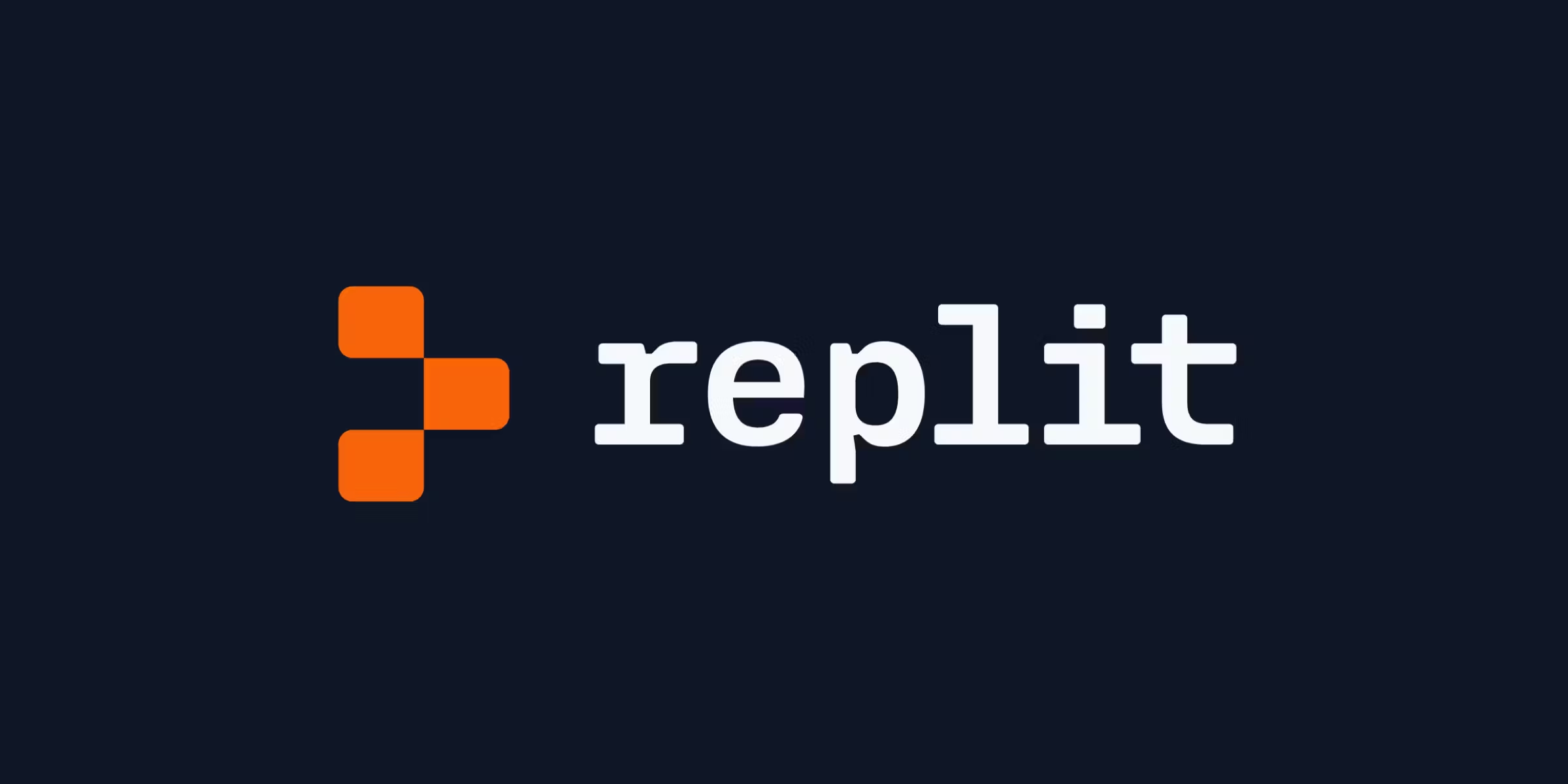
- Challenge
Enable AI coding assistants to access project context, git history, deployment data - Solution
Comprehensive MCP ecosystem for development workflows - Status
Among development tools companies working with MCP to enhance their platforms, enabling AI agents to better retrieve relevant information and produce more nuanced code
3. Sourcegraph - code intelligence at scale
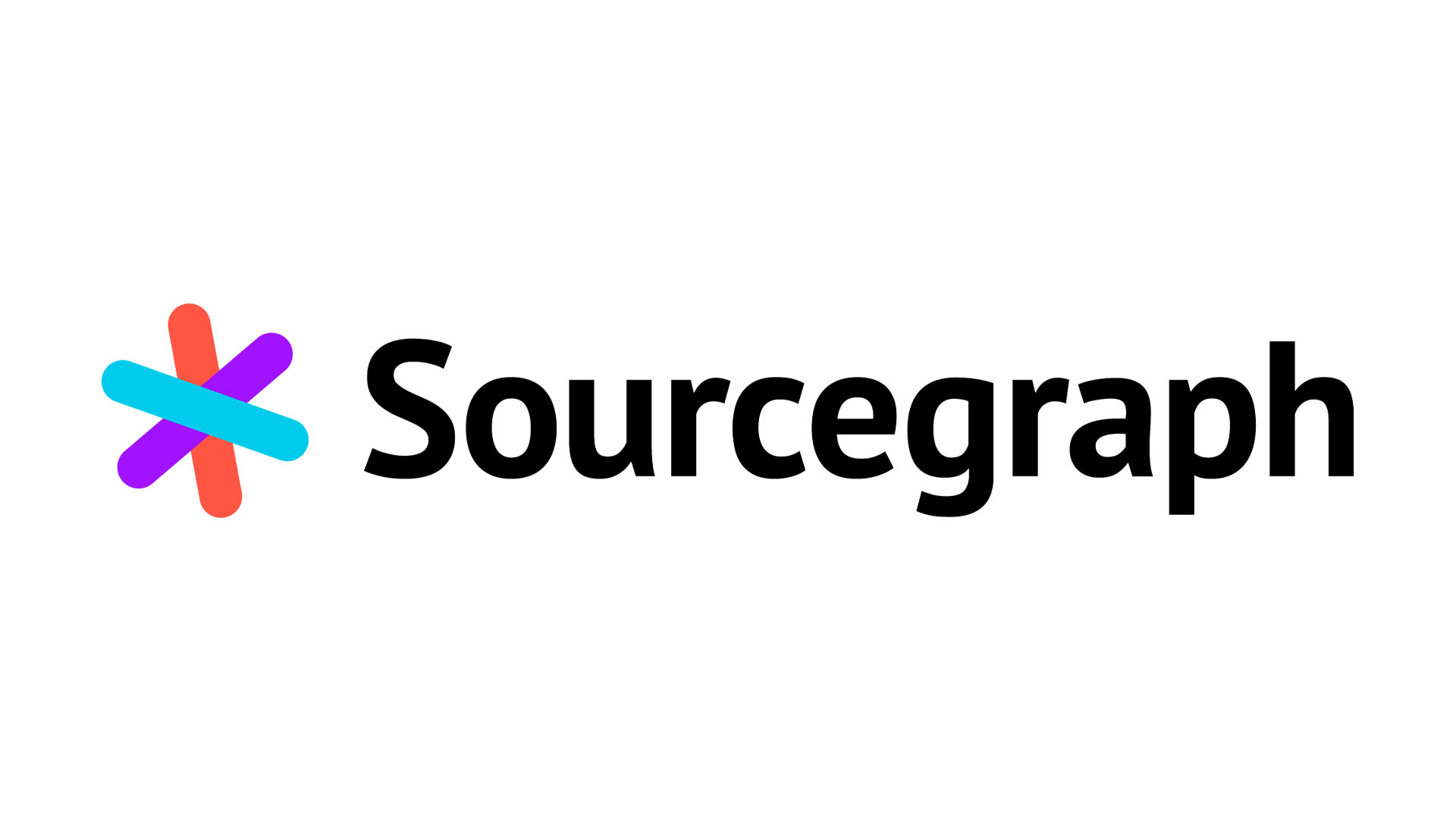
- Challenge
Provide AI with semantic understanding of codebases across organizations - Solution
MCP servers for code search, dependency analysis, security scanning - Integration: Sourcegraph Cody implements MCP through OpenCtx for enhanced code intelligence
Emerging use cases and market opportunities
According to industry analysis, MCP adoption is expanding rapidly across multiple sectors:
1. Healthcare AI integration
- Patient data aggregation from EHR systems
- Medical research database connectivity
- Compliance-aware data access patterns
- Real-time clinical decision support
2. Financial services innovation:
- Real-time market data integration
- Risk assessment AI with regulatory compliance
- Customer service automation with account access
- Fraud detection with transaction history analysis
3. Manufacturing and IoT:
- Production line data integration
- Predictive maintenance AI connectivity
- Quality control system automation
- Supply chain optimization with real-time data
4. Developer tools ecosystem
As reported by various development platforms, companies including Zed, Replit, Codeium, and Sourcegraph are working with MCP to enhance their platforms.
Code editors and IDEs have adopted support for the protocol, including Zed (which surfaces prompts as slash commands), Cursor (with MCP tools in its Composer environment), and Continue (an open-source AI code assistant).
Future market projections and investment opportunities
The rapid adoption of MCP by major tech companies signals significant market potential.
In March 2025, OpenAI officially adopted the MCP, following a decision to integrate the standard across its products, including the ChatGPT desktop app, OpenAI's Agents SDK, and the Responses API. Sam Altman described the adoption of MCP as a step toward standardizing AI tool connectivity.
Key market drivers:
1. Security solutions
Growing demand for enterprise-grade MCP security frameworks
2. Enterprise tooling
Advanced monitoring, management, and deployment solutions
3. Industry-specific servers
Vertical-specific MCP implementations for healthcare, finance, manufacturing
4. Performance optimization
Tools and services for scaling MCP deployments
9. How can mastering MCP give your company a competitive edge?
The Model Context Protocol represents more than just another integration standard, it's the foundation for the next generation of AI-powered applications.
Organizations that master MCP implementation today will have significant competitive advantages as AI becomes increasingly central to business operations.
Key takeaways from this guide:
- Technical mastery
You now have the practical knowledge to build production-ready MCP servers with enterprise-grade security and performance - Strategic understanding
MCP's universal compatibility and standardization benefits provide clear ROI for development investments - Security awareness
Understanding and implementing MCP security best practices is crucial for enterprise deployment success - Market positioning
Early adoption of MCP positions your organization at the forefront of AI integration innovation
.png)
Your next steps:
1.Start building
Use the code examples in this tutorial to create your first MCP server. Or if you don’t have the knowledge, don’t hesitate to reach out to Linnify, you can do it at requests@linnify.com
2. Join the community
Contribute to the open-source MCP ecosystem and learn from other developers
3. Scale strategically
Plan your MCP implementation roadmap based on business priorities and technical requirements. If you’re not sure how to do it, we’d be glad to assist you.
4. Stay updated: Follow MCP specification updates and security advisories for ongoing optimization.
10. Relevant resources for MCP
Industry research and reports
- McKinsey Global AI Survey 2024: AI adoption and implementation statistics
- Gartner AI Implementation Report 2024: AI project costs and timelines
- MIT Sloan Management Review: AI project failure rates and causes
- Harvard Business Review AI Development Study: AI development timelines and challenges
- Stack Overflow Developer Survey 2024: Developer salary and productivity data
SaaS and revenue metrics:
- SaaS Capital State of SaaS Report 2024: SaaS growth metrics and AI revenue impact
- Bessemer Venture Partners State of the Cloud 2024: Cloud software pricing and AI premiums
- GitHub State of the Octoverse 2024: Developer productivity and AI-assisted development
AI productivity and implementation studies:
- GitHub Copilot Research: AI coding assistant productivity improvements
- Salesforce State of Sales Report 2024: AI impact on sales performance
- Thomson Reuters Legal AI Impact Study 2024: AI efficiency in legal research and practice
Platform and enterprise studies:
- Shopify Commerce Trends Report 2024: E-commerce AI optimization and merchant success
- Microsoft Teams AI Features Report 2024: Workplace collaboration AI productivity
- OpenAI Enterprise Usage Report 2024: Enterprise AI adoption and cost optimization
MCP-specific sources:
- Anthropic MCP Official Announcement: Model Context Protocol introduction and early adopter results
- MCP Official Documentation: Technical specifications and implementation guides
Frequently asked questions about MCP (Model Context Protocol)
1. What is the Model Context Protocol and why is it important for AI in 2025?
The Model Context Protocol (MCP) is a universal standard that connects AI models with real-world data sources, enabling context-aware capabilities. It’s critical for scalable, production-ready AI systems in modern software businesses.
2. How does MCP improve over traditional API integrations?
Unlike traditional APIs that require unique, custom connectors, MCP provides a single, open standard that allows developers to connect any AI model, such as Claude, ChatGPT, or Gemini, to any system with less effort and more flexibility.
3. Is MCP secure enough for enterprise applications?
MCP includes built-in security features like OAuth 2.1, TLS encryption, audit logging, and access controls. Enterprises can further enhance security with sandboxing, context separation, and prompt validation strategies.
4. What are real-world examples of MCP in action?
Organizations like Block (Square), Sourcegraph, and Replit use MCP to streamline financial analysis, code intelligence, and developer workflows. These integrations result in faster time to market, higher developer productivity, and reduced technical debt.
5. How can a development team start implementing MCP?
Start by selecting a use case where AI needs more context, like file access, internal APIs, or real-time data. You can then use existing open-source MCP server templates or build your own following the official MCP documentation.
6. Which tools and platforms support MCP today?
Leading AI models and platforms such as Claude 3.5, ChatGPT (via the Agents SDK), Gemini, and developer tools like Zed, Cursor, and Replit are MCP-compatible. Integration support is growing across industries.
Contributors
Speakers
Guest
Host
Immerse yourself in a world of inspiration and innovation – be part of the action at our upcoming event

Download
the full guide
Let’s build
your next digital product.
Subscribe to our newsletter
YOU MIGHT ALSO BE INTERESTED IN
YOU MIGHT ALSO BE INTERESTED IN

















